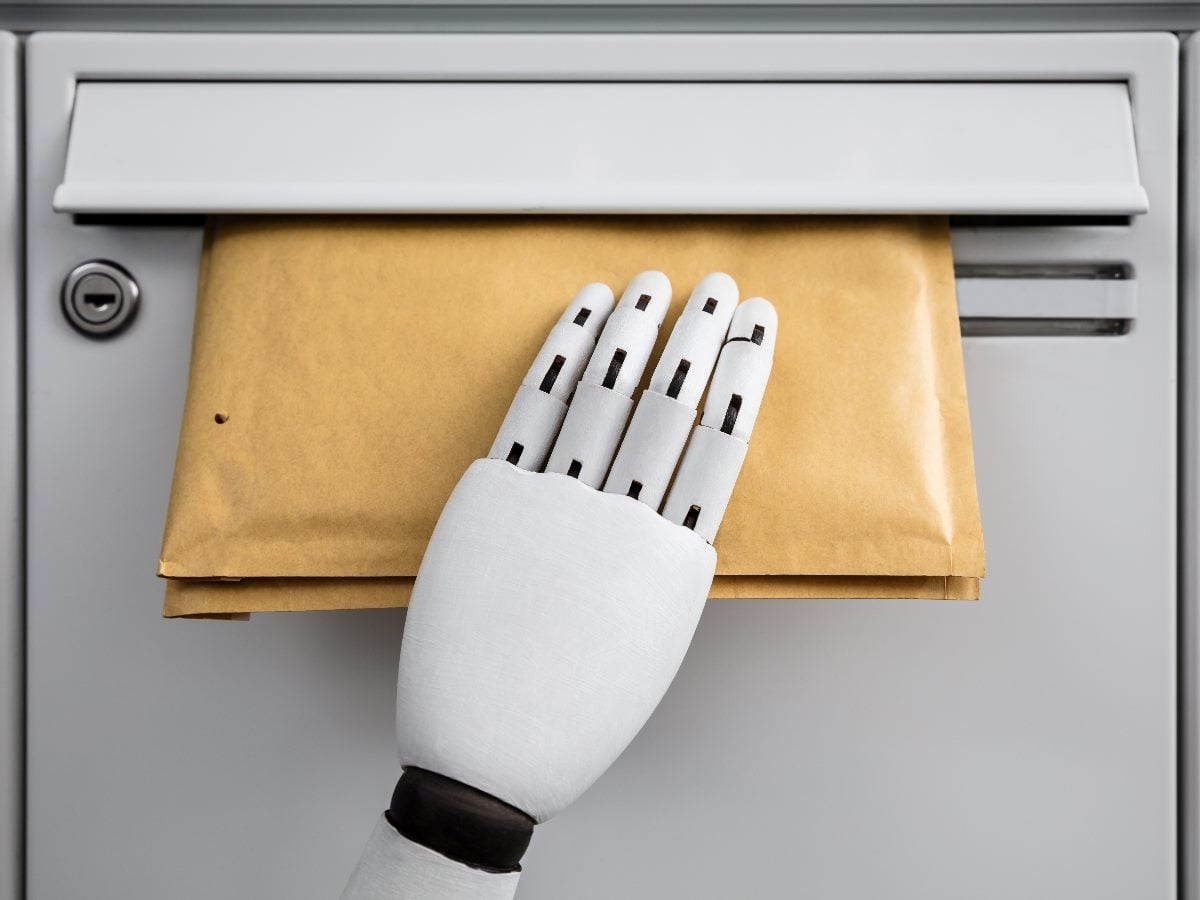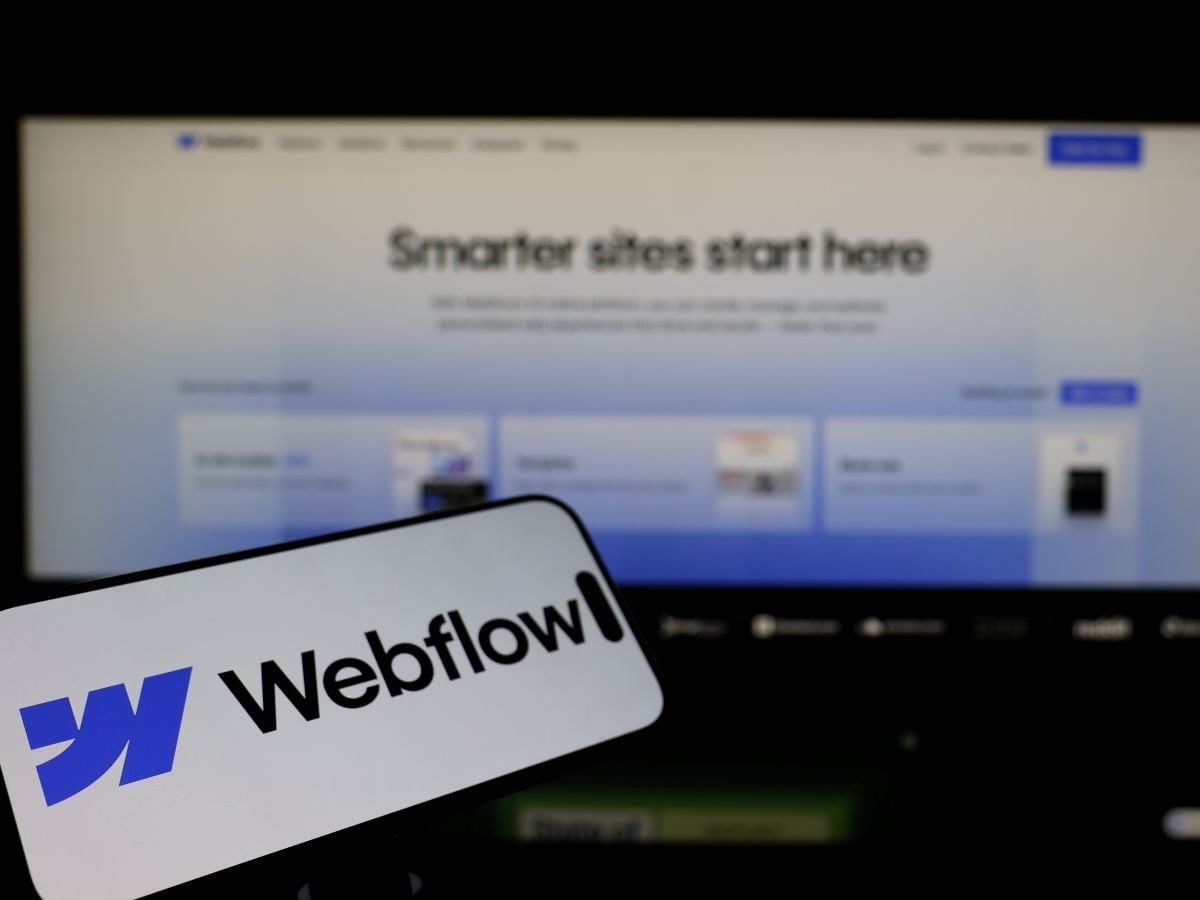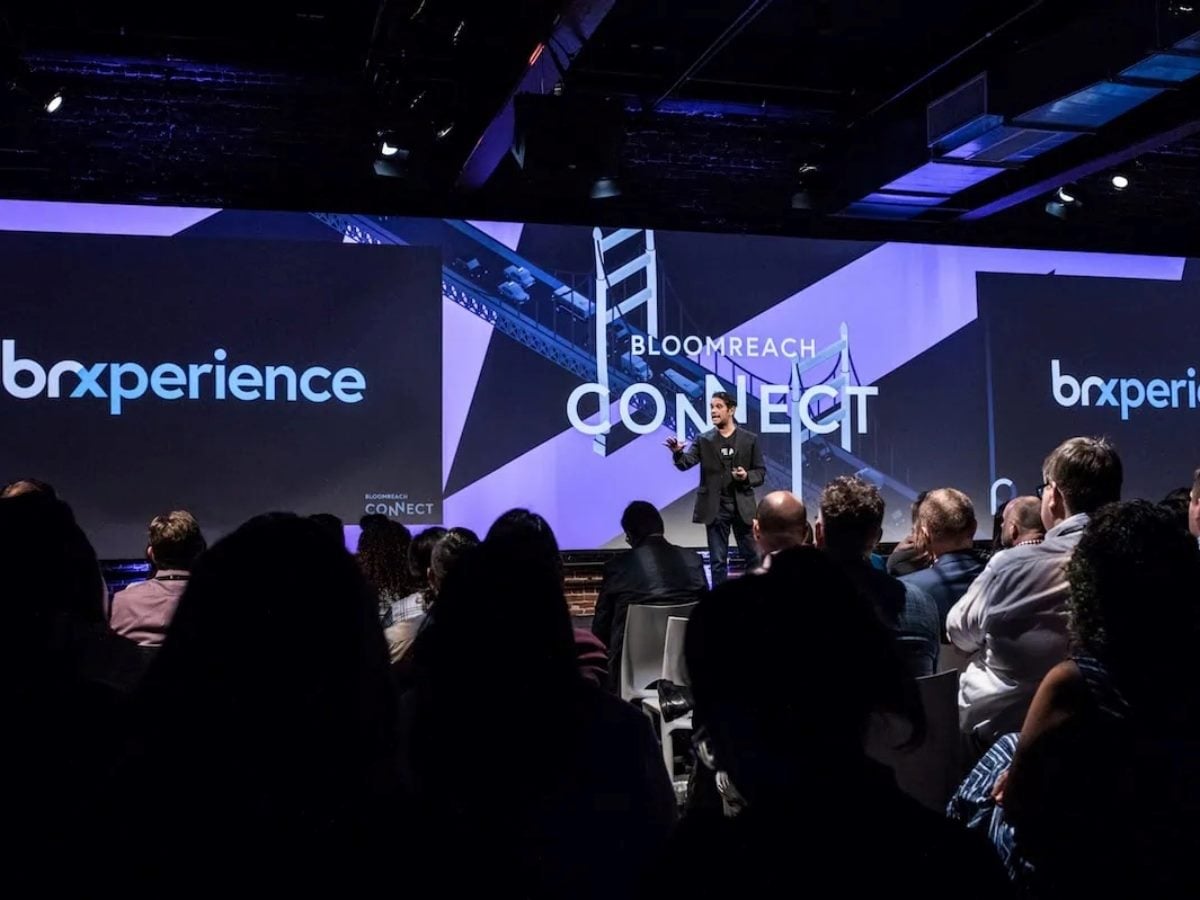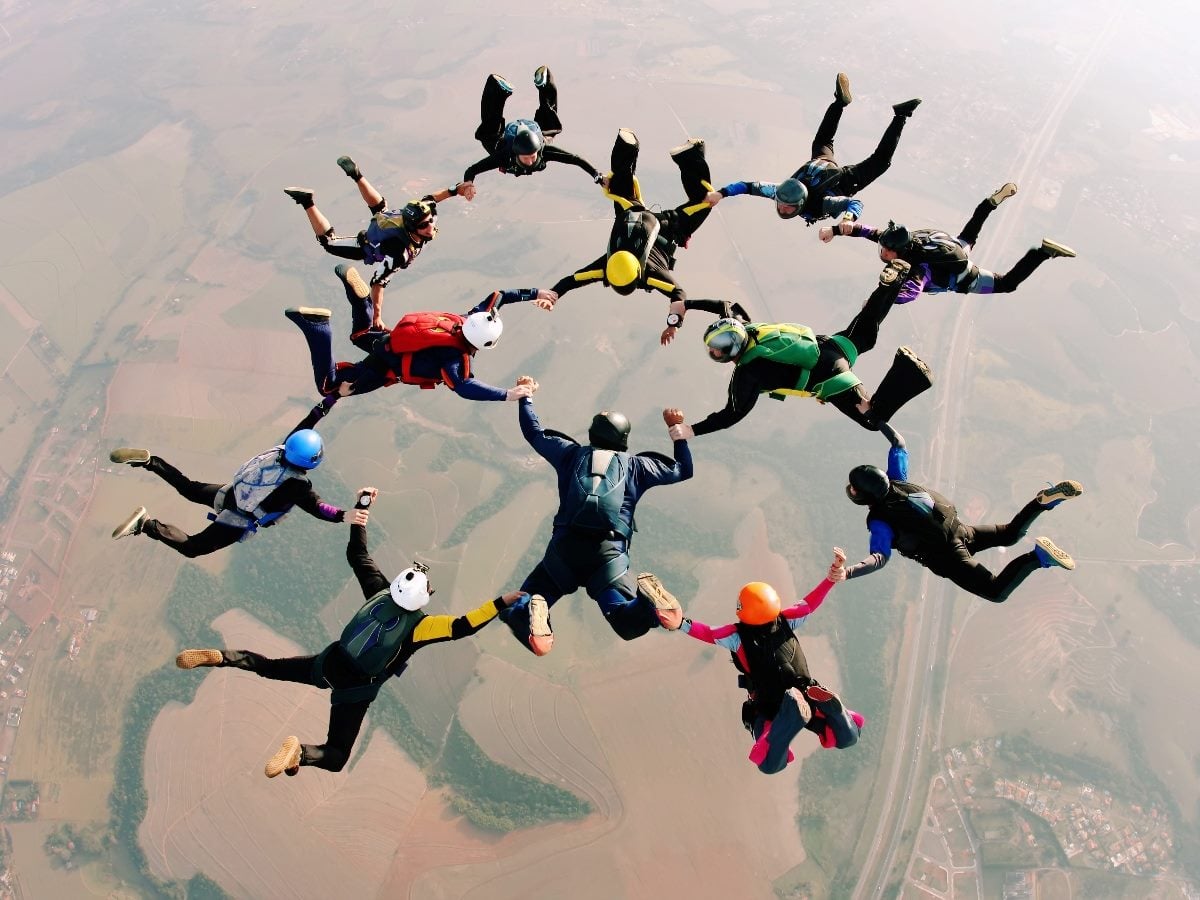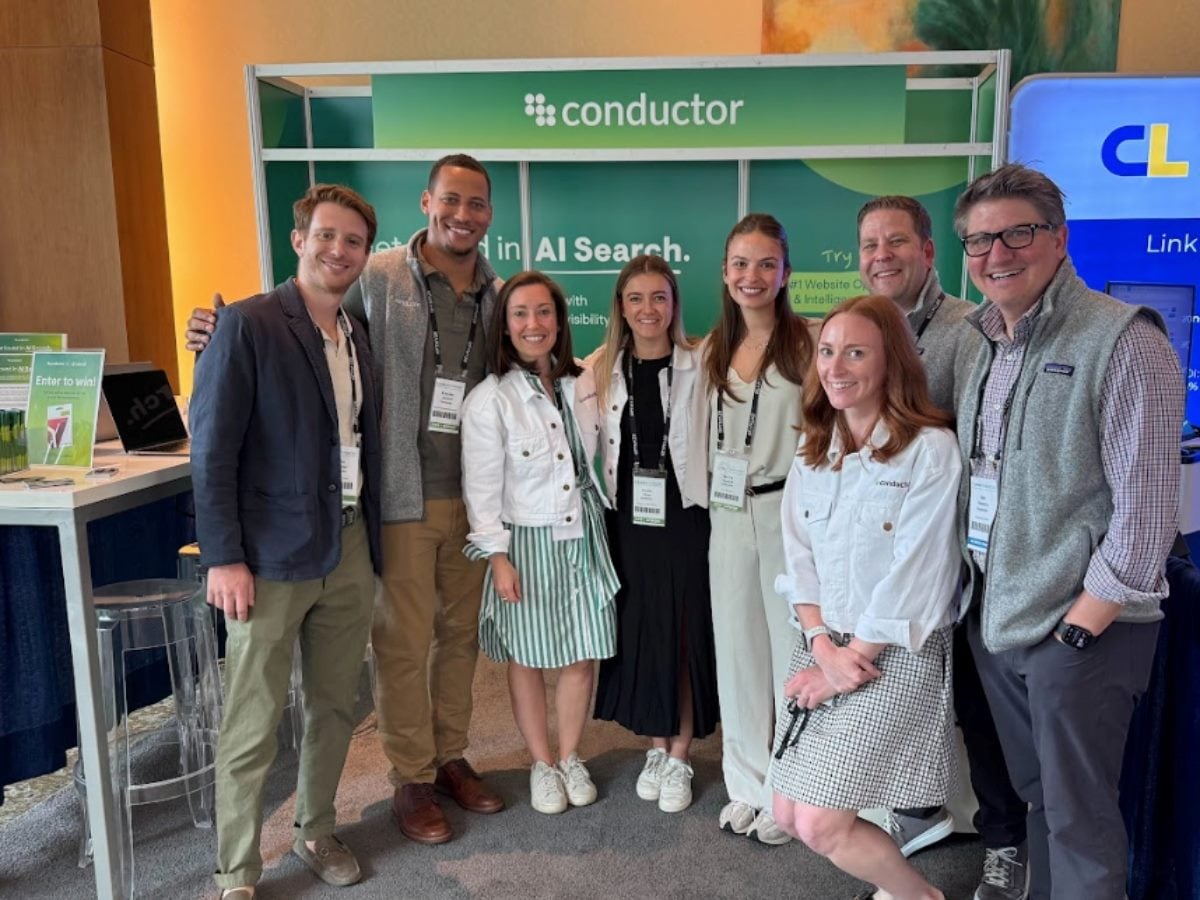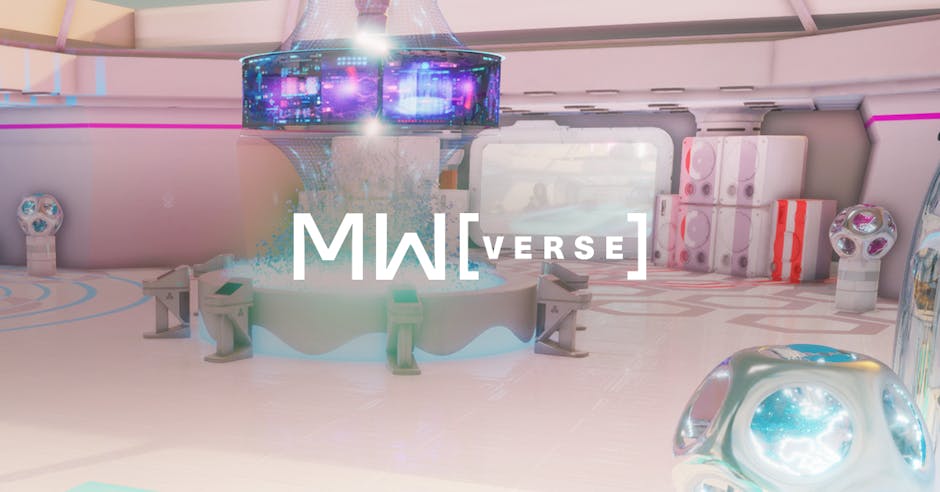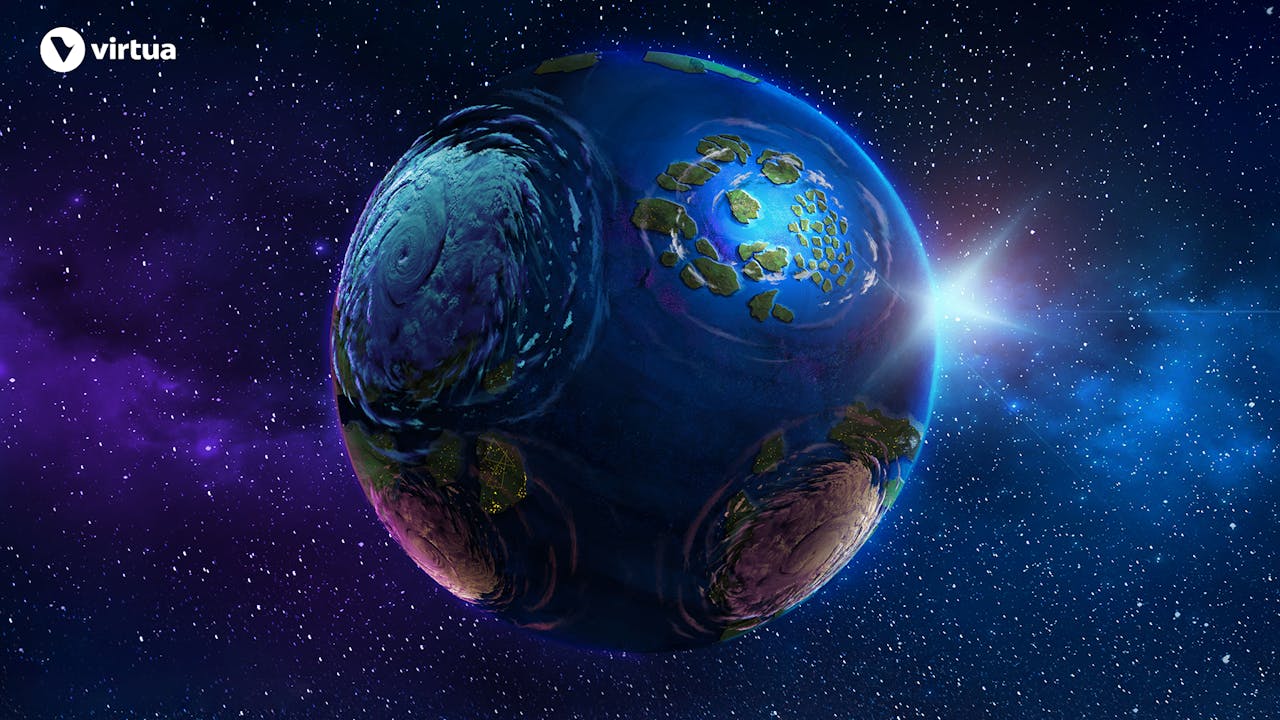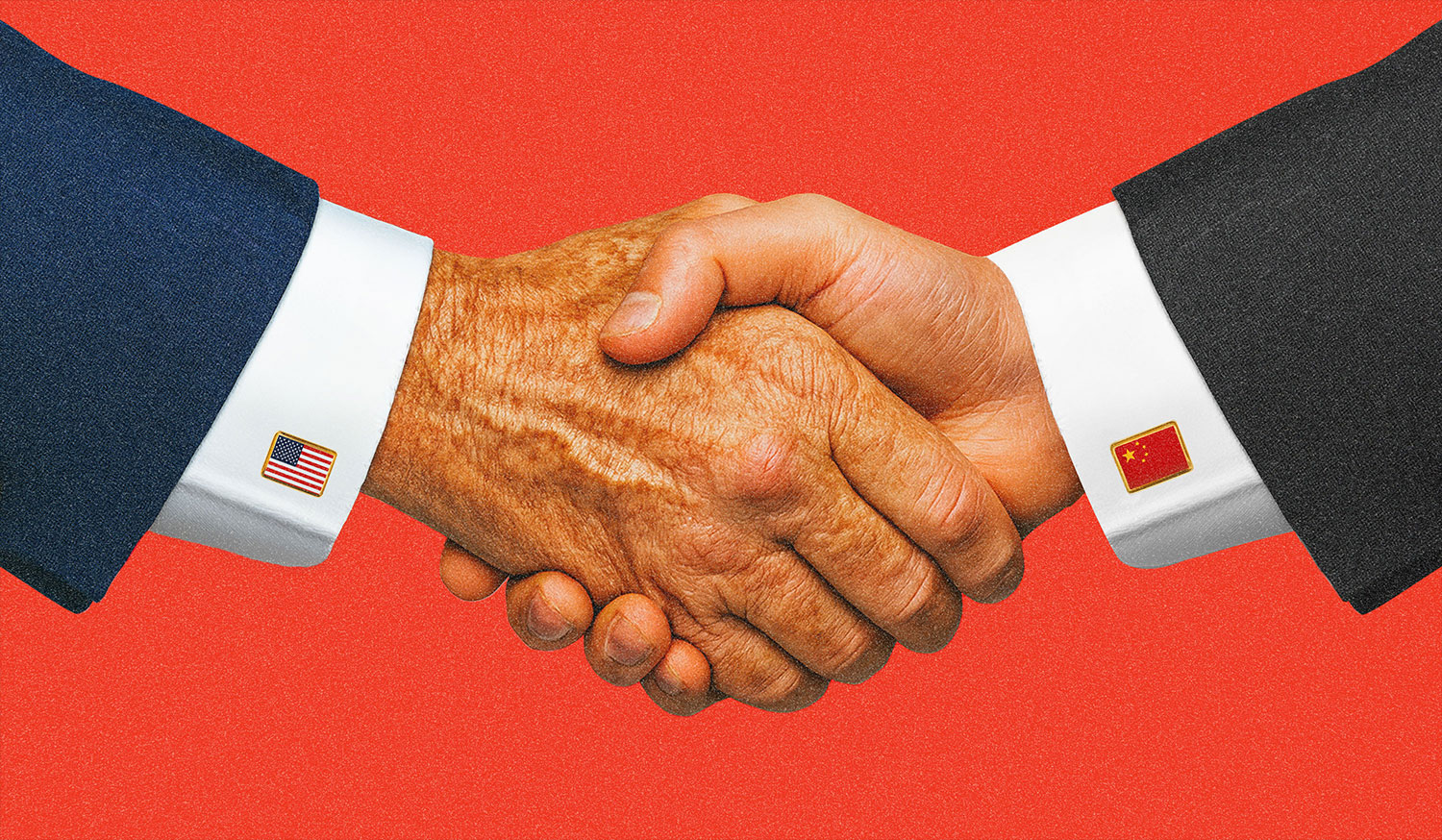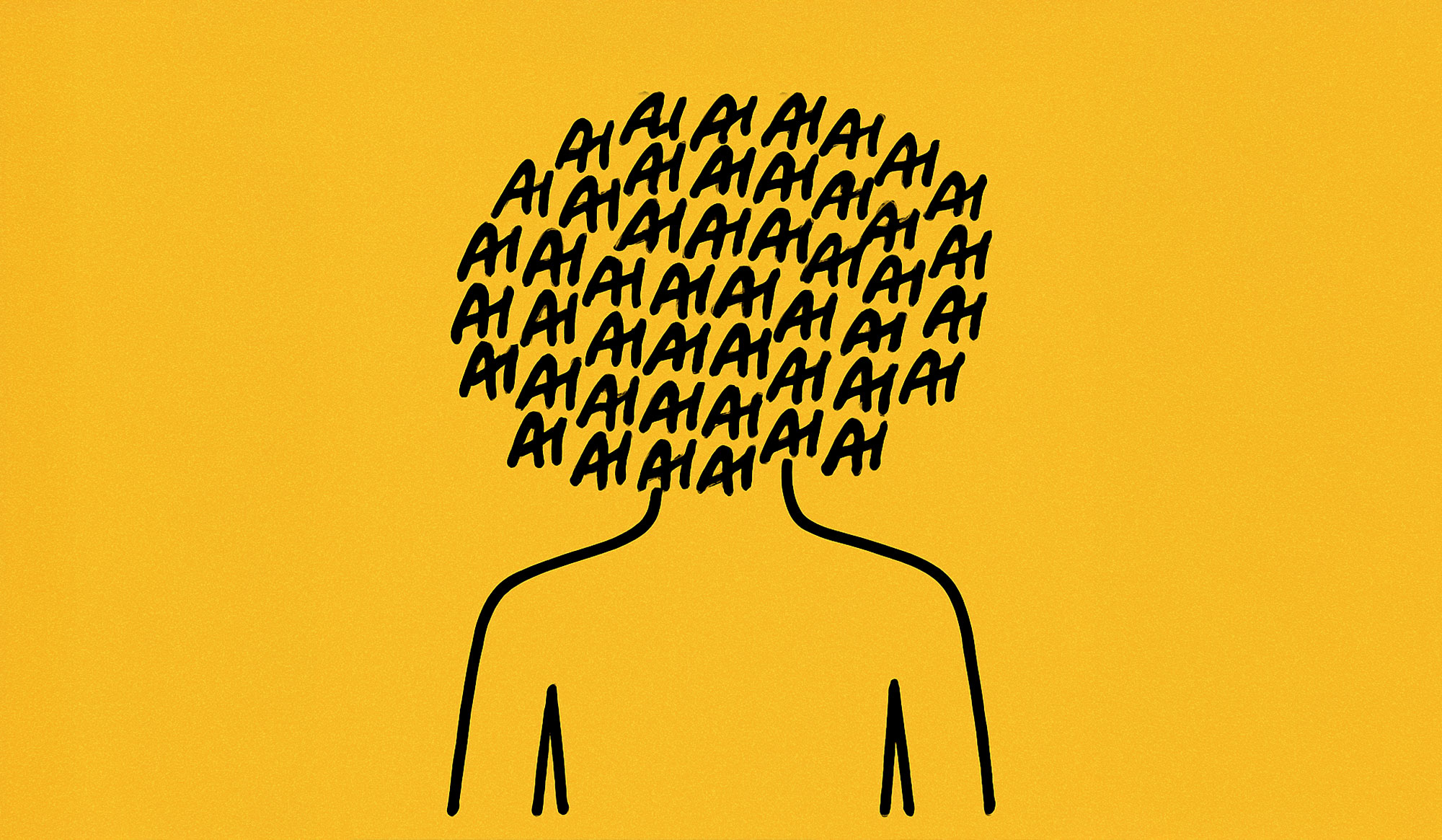#marketing
#marketing
[ follow ]
#generative-ai #customer-experience #cmo #ai #cmo-leadership #editorial-research #social-media #brand-strategy #seo
fromRetail Brew
4 days agoSydney Sweeney's Syrn has already attracted controversy, but can it be a brand that lasts?
So you could be like, 'I hate her because of the American Eagle,' or you love her because of the American Eagle, but no matter what, you're talking about her. For a brand launch, that's always a good thing. Controversy and craziness and all that kind of stuff is good for initial curiosity.
Marketing
fromBusiness Insider
1 week agoI built my career in Japan as an American. I learned there's one thing that's non-negotiable.
I grew up in a small town in Indiana, but my interest in Japan started early. I still remember watching a "Sesame Street" episode where Big Bird visits Japan. That image stuck with me. In college, that curiosity took shape: I studied Japanese at the University of Chicago and spent a summer in Hokkaido. After graduating, I moved to Japan in 2008 to teach English, though a career in teaching was never my goal.
Startup companies
Agriculture
fromRealagriculture
1 week agoHow Could I Know? Ep 2: Frustration, family, and playing the long game with Gunter Jochum
Frustration and unexpected responsibility in farming can drive skill development, resilience, stronger marketing, and long-term trust-based relationships necessary to weather tough seasons.
fromFast Company
1 week agoSweethearts has the most valuable real estate of all Valentine's Day candy
The pastel-colored conversation hearts stay relevant year over year because their embossed messages can be easily and quickly updated, transforming a generic shape into a crunchy candy canvas that's adaptable to the moment. That makes the face of these tiny hearts some of the most valuable real estate in the Valentine's Day candy landscape, because the right quip could convert a passerby into a sale.
Marketing
fromFortune
2 weeks agoThe Super Bowl reveals a dangerous gap in corporate strategy | Fortune
This year's Super Bowl highlighted a striking reality: companies are willing to spend record sums for cultural relevance they often lack the organizational capability to sustain. With viewership projected to rival last year's 127-plus million U.S. audience, yesterday's Super Bowl LX reinforced the event's unrivaled power to concentrate mass attention as the Seahawks and Patriots took the field and Bad Bunny delivered a halftime performance engineered to dominate global conversation.
Marketing
fromThe Drum
2 weeks agoMarketing at millennials won't save your tired brand
But we in marketing also have a certain fixation on youth. Millennials (put roughly, those born between 1980 and 2000) are the prime suspect at the minute because from where we sit in London, it seems like they're reaching their prime consumption years. They value experiences over things. They want authentic connections to brands. They want to be marketed to via a social influencer instead of a traditional ad (ha! they want to be marketed to - insert laugh/cry emoji here).
Marketing
fromKotaku
3 weeks agoGTA 6 Marketing Will Start In Summer, Still Launching In November
On Tuesday, as spotted in a press release about Take-Two's Q3 2026 earnings results by IGN, the company confirmed that it plans to start marketing Grand Theft Auto 6 sometime in summer, which seems to indicate that the game, which has been delayed a few times now, is actually (for real) getting close to launching later this year. "I feel good about it. Very good about it," said Zelnick when asked by the outlet how he felt about GTA 6 's November 19 release. "Of course, because any time you're getting closer to marketing beats, you're obviously in a place where your confidence level is as high as it can be."
Video games
fromThe Drum
3 weeks agoPeople on the move: Hires and departures at Tumblr, Dazed, Bauer Media and more
Prior to her role at Tumblr, Simonian was vice-president of branded music for Nielsen Entertainment and, earlier, inaugural head of Twitter Music. She has additionally held roles at Disney and Hot Topic, where she created multi-platform activations for music film and product initiatives.
Media industry
fromThe Drum
3 weeks agoRoll of honour: Grand Prix winners at The Drum Awards
Strategy and creativity are celebrated in equal measures at The Drum Awards. Across the board, there are plenty of examples of fantastic and innovative work produced by agencies, brands and individuals each year. But what makes a winner? How do you shout from the rooftops that your campaigns are brilliant? At The Drum, there are 22 awards that celebrate the finest work produced globally. Following are seven examples of the best of the best of The Drum Awards 2017 winners.
Marketing
fromwww.theguardian.com
3 weeks agoHere we go again': $75m Melania film embodies venal spirit of Trump 2.0
Donald and Melania Trump were walking a charcoal-coloured carpet beneath a stark black-and-white MELANIA backdrop. Do you believe you'd be the man you are today if you hadn't met your wife? a reporter asked the US president. Trump smiled and said: He's asking me a very dangerous question! He went on to praise his wife without answering. When the reporter put the same question to Melania, she ventured: Well, we will all be in different places, I guess.
US politics
fromThe Drum
4 weeks agoBad clients get bad work: Here's what good ones want from their agencies
They also specifically asked not to have a TV script. Come the pitch, the agency brought in their chief strategist who acted out the viral script. Dean's reaction? "Scared shitless. We've got to do it." The campaign went on to create huge amounts of attention with the delight of people sharing it being one thing and the outrage of some adding to the high profile of the video.
Marketing
fromThe Drum
4 weeks agoData-driven audience discovery is de rigueur, say The Drum Marketing Awards US judges
"What's old is new again," Lam said. "I think brands are going to think about how to really inspire people in everything they do - from product development to other areas of business."
Marketing
fromThe Drum
4 weeks agoSo You Want My Job? Rakuten Rewards CMO Dana Marineau on building its in-house creative team
My childhood dream was to become a news anchor. I was obsessed with watching the news and inspired by women anchors such as Connie Chung and Barbara Walters. I would beg my parents to let me stay up late to watch them. I held on to that dream all the way until college. But once I took a few journalism classes, I learned something about myself that ruled it out as a career - I absolutely hated being on camera. I realized that what attracted me to journalism was storytelling and crafting a narrative that shapes how people understand and interpret the world.
Marketing
fromBuffer: All-you-need social media toolkit for small businesses
1 month agoThe Ultimate Guide to GIFs: How to Create Them, When to Use Them and Why They're Essential for Every Marketer -
GIFs are animated image files that enhance digital communication, easily created using tools like GIPHY, Canva, or Photoshop and useful for marketing.
fromAol
1 month ago15 Work-From-Home Jobs That Pay at Least $55 an Hour
These days, many Americans are looking for part-time or freelance work to earn extra money from home. However, getting a side hustle to supplement their income is not the only way to keep a little extra cash in their wallets every month. In fact, one of the major perks of landing a remote job is the time and money saved on commuting to work every day.
Remote teams
fromThe Drum
1 month agoHow Duolingo, Coke and Expedia are harnessing GPT-4
OpenAI's new LLM has revolutionized AI and opened up new possibilities for marketers. Here's a look at how three big-name brands have embraced the technology. In March, the AI lab OpenAI released GPT-4, the latest version of the large language model (LLM) behind the viral chatbot ChatGPT. Since then, a small number of brands have been stepping forward to integrate the new-and-improved chatbot into their product development or marketing efforts. To a certain extent, this has required some courage.
Artificial intelligence
fromAdweek
1 month agoADWEEK MiniMBA
Mark Ritson, a leading figure in the world of marketing With a BSc and PhD in marketing, Mark has spent the past 25 years teaching his unique method to MBA students at some of the world's top business schools, including award-winning courses at London Business School, MIT and Melbourne Business School. Not only has he taught on these prestigious programs but his teaching has been widely acclaimed with Mark winning the teaching prize
Marketing
fromRestaurant Dive
1 month agoWhite Castle appoints CMO
Richardson succeeds Lynn Blashford, who is retiring after working at White Castle for 15 years, including the past six years as CMO, according to a press release emailed to Restaurant Dive. Richardson has worked at the fast food chain for more than 27 years in various marketing roles with increased responsibility, according to his LinkedIn profile. He will report to White Castle President Anthony Joseph. Prior to his promotion, Richardson served as vice president of marketing and public relations,
Food & drink
fromKotaku
1 month agoNintendo Accused Of Using GenAI To Promote Upcoming Mario Toys
Nintendo, a company that regularly brings in billions of dollars each year , could have easily afforded to set up a real photoshoot to promote its upcoming line of coming to its New York City and San Francisco stores in February, but it looks like it might have used genAI instead. At least, that's what people think after looking at the photos of parents playing with their kids and the toys.
Gadgets
Marketing
fromInc
1 month agoWant to Change Someone's Behavior? Understand How the Brain Builds Habits, According to Neuroscience
Consistent brand presence during reward-tied moments forms durable consumer habits through temporal cue-reward associations, often without emotional or creative storytelling.
fromThe Drum
1 month agoHow to generate images for business with AI: A guide to perfect prompts
A typical AI-powered tool leverages the "knowledge" gained from previously processed image libraries. The more vivid these databases and the more additional information they include - like detailed descriptions of objects in pictures or other tags that may simplify visual object recognition- the better the final result a tool delivers. The origin of processed databases and the legal safety of generated images are other critical issues regarding AI-powered tool usage.
Artificial intelligence
fromBevindustry
2 months agoHOPWTR launches Drink Whatever You Want campaign
HOPWTR is kicking off its Drink Whatever You Want campaign, just as global curiosity peaks around the mysterious interstellar object 3i/ATLAS, which is currently making its way toward Earth. As headlines swirl about unidentified objects beneath U.S. waters and scientists debate whether 3i/ATLAS signals extraterrestrial life or just another space rock, HOPWTR is leaning directly into the moment with a simple message for consumers: drink whatever you want, because the aliens are coming anyway.
Marketing
fromThe Drum
2 months agoWhat was social media's 'word of the year' for 2025?
Our first-ever Social Media Dictionary offers a deep dive into the words that defined global conversations this year. And what was the word of the year? 'Aura' skyrocketed from relative obscurity to more than 31.9bn impressions, becoming a new cultural touchstone for millions. Boat dance 'Aura' originated in niche online communities, where it was used in early conversations about sports, fashion, and meme culture as a way to playfully talk about someone's vibe and presence.
Social media marketing
fromDigiday
2 months agoStarbucks hires first-of-its-kind marketing role heading up fashion and beauty collabs
Starbucks has poached a senior manager from E.l.f. Cosmetics as part of its ongoing quest to re-energize the Starbucks brand through cultural collaborations. Neiv Toledano has joined Starbucks as its senior marketing manager of fashion and beauty. While Starbucks has always had employees who have worked on collaborations, including in the fashion and beauty spaces, this is a first-of-its-kind dedicated role and a signal that Starbucks is placing a bigger premium on these types of partnerships.
Marketing
Business
fromBusiness Insider
2 months agoI'm an ex-Clinton strategist turned CEO. I don't micromanage and love Chinese food and brain games - here's a day in my life.
Founded Stagwell in 2015 to create a people-oriented global marketing and communications company; leads a 13,000-employee firm and maintains a disciplined daily routine.
Marketing
fromInc
2 months agoGoogle Exec Confirms What We Suspected About How Businesses Get Into AI Search Results
Optimizing for AI-driven search requires the same fundamentals as traditional SEO: build high-quality, user-focused websites and distinctive long-form content to be trusted and discovered.
fromBusline News
2 months agoVicki Bowman To Serve As Marketing & Business Development Lead For Transportation Advisors - Busline News
Bowman will continue supporting her VB Group (vbgmarketing.com) clients while adding this new role that aligns with her long-standing commitment to helping transportation companies strengthen communication, compliance outreach, and strategic growth,
Marketing
New York Islanders
fromEyes On Isles
2 months agoNY Islanders business operations boss says fanbase must get younger, more diverse
The New York Islanders must expand and diversify their fan base—attracting younger, more female and multicultural fans—by leveraging on-ice success and community visibility.
Marketing tech
fromSitePoint Forums | Web Development & Design Community
2 months agoSEO After Google Updates: Why Marketing & Website Security Now Go Together
Website security, performance, and trust signals increasingly affect SEO and marketing; lightweight protections and manual configuration checks support data quality, user trust, and rankings.
fromBikeMag
2 months agoWatch: Alden Pate's Private Trail Session Shows Why Loam is King
Deven grew up in a small town in southern Oregon, renowned for its extensive trail networks. He has held almost every job in the industry, from an unpaid shop groom to sales and service manager, and even PR and Marketing for several prominent cycling brands. With a deep love for cycling in all its forms, Deven advocates opening the sport to everyone and facilitating positivity.
Bicycling
fromPinkNews | Latest lesbian, gay, bi and trans news | LGBTQ+ news
2 months agoPeople are really accusing Jonathan Bailey of 'straight-baiting'
Essentially what it refers to is someone or something presenting as straight but in reality is not. It's the exact opposite of 'queer-baiting', where someone or something presents as being queer without actually identifying as such. In 2018, people said Brokeback Mountain was an example of 'straight-baiting' as its advertising used the film's mixed-gendered couples in its marketing. This appeared to have lured numerous people in who probably wouldn't have gone to a gay film had they known that was at the its core.
LGBT
fromHer Campus
2 months agoHow Gen Z Is Shaping The Future Of Marketing: An Unhinged Review
Recently, people have realized that some of the best marketing is the most outrageous brain-rot possible. But why does it work so well? From one Gen Z-er to another, I'll give the unhinged truth as best I can. To really find the root of the cause, we need to first look at our childhoods and what most people grew up on: SpongeBob SquarePants.
Marketing
fromForbes
2 months agoWhat Marketers Can Learn From Political Messaging: The Politician's Communication Approach
Anshuman Dutta is a marketing director at . Influences global audiences on tech, identity and society. In an era of information overload and declining trust, one politician's communication strategy offers unexpected lessons for business marketers. Zohran Mamdani, a New York State Assembly member representing Astoria, Queens, and the mayor-elect of New York City, has built a devoted following not through compromise or moderation, but through radical clarity.
Marketing
fromwww.newsday.com
2 months agoTHE WEEK AHEAD: Business events, Dec. 8-14
Port Washington: Review five popular social media networks and the benefits of each, how other businesses use social media, what to create, how to tell if it works and more, 7 p.m., Port Washington Public Library, 1 Library Dr., free, pwpl.org, 516-883-4400. BUSINESS MENTORING Rockville Centre: SCORE volunteers provide guidance on starting, managing and growing your small business, 10 a.m.-1 p.m., Lakeview Public Library, 1120 Woodfield Rd., free, call to register for an appointment, lakeviewlibrary.org, 516-536-3071.
Online marketing
London startup
fromBusiness Insider
2 months agoI joined a company with an AI mandate. I was daunted at first, but I've saved hours by solving a big, boring problem.
An AI mandate requiring employees to generate half their output freed time by automating mundane tasks, enabling more focus on creative marketing and cryptogaming.
[ Load more ]
